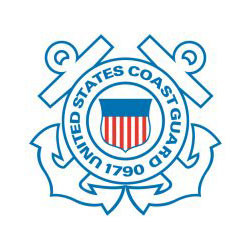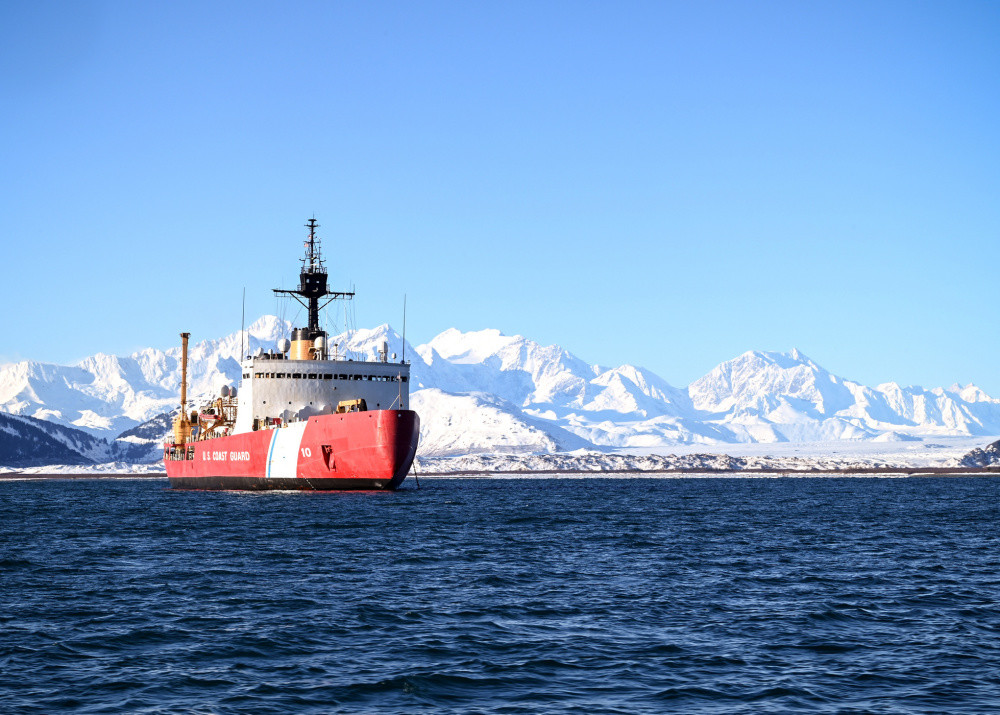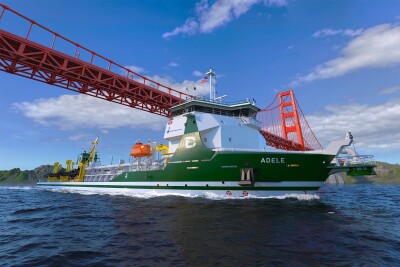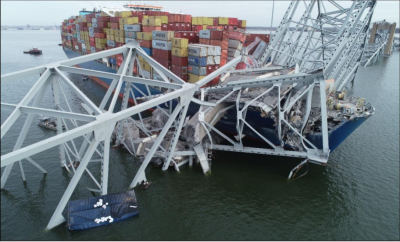The Coast Guard Cutter Polar Star returned to its homeport in Seattle Saturday following a months-long Arctic deployment to defend the nation’s maritime sovereignty and security throughout the region, develop future Arctic sailors, and gather high-latitude scientific data.
The 45-year-old heavy icebreaker’s crew spent a majority of the patrol operating in the Bering and Chukchi seas. Notably, on Dec. 25, the crew traversed a historic winter latitude when they navigated through dense sea ice to patrol beyond 72 degrees latitude, which is farther north than any U.S. surface asset ever traversed in the winter.
Additionally, in mid-January, the Polar Star crew and a Russian Border Guard aircraft crew patrolled a portion of the 1,700-mile international maritime boundary line. The joint effort supported mutual agreements to prepare for and reduce the impact of a potential natural or manmade maritime disaster.
Capt. Bill Woityra, the Polar Star’s commanding officer, said he is incredibly proud of Polar Star’s crew for their hard work and perseverance through the long and arduous mission.
“Spending a majority of the patrol navigating dense, constantly shifting sea ice, consistently below-zero temperatures and day-long darkness, the crew’s resilience was unyielding,” said Woityra. “With their tremendous effort and positive attitudes, we accomplished everything we set out to do, and more.”
Throughout the patrol, the crew continued progress towards developing future icebreaker leadership by honing ice navigation proficiency and regional familiarity. The crew also hosted scientists and researchers aboard to better understand Arctic operational capabilities and lessen the void of winter data available from the world’s most northern oceans.
Woityra said that the U.S. and the Coast Guard are fiercely committed to defending national interests in the Arctic and, looking to the future, the U.S. must continue to invest in the infrastructure and platforms that will enable year-round Arctic operations, and continue to pursue technologies that will mitigate operational risks and enable mission performance in such a challenging environment.
In April 2019, the Coast Guard released the Arctic Strategic Outlook, which reaffirms the service’s commitment to American leadership in the region through partnership, unity of effort, and continuous innovation.
The Coast Guard has been the sole provider of the nation’s polar icebreaking capability since 1965 and is seeking to increase its icebreaking fleet with up to six new polar security cutters (PSC) to ensure continued national presence and access to the Polar Regions.
The Coast Guard awarded VT Halter Marine Inc., Pascagoula, Miss., a contract for the design and construction of the Coast Guard’s lead polar security cutter, which will also be homeported in Seattle. The contract also includes options for the construction of two additional PSCs.





